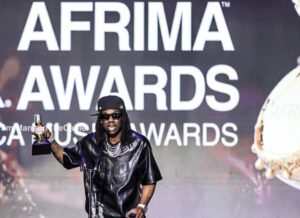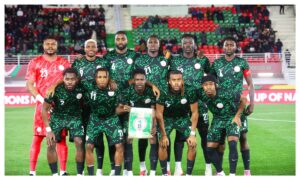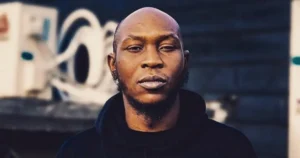Encounter with a prophet – Tribune Online
[ad_1]
Like the multiple award-winning poet, Professor Niyi Osundare, I am also “farmer-born, peasant-bred.” Like him, I “encountered dawn in the enchanted corridors of the forest.” A powerful pastor once came to our village with drums and flutes. It was supposed to be a one-off visit but that first arrival was a harvest of blessings for his ministry and so he made his coming a daily affair. Every day, Pastor came in the evening when men were back from the farm and women had finished their buying and selling. Pastor grew popular; he was revered, feared and worshipped by almost everybody – and we were a community of majority Muslims. Some called him Pastor but for many, he was simply Wòlíì (prophet). He had with him girls who sang the songs he dictated. There were evening revivals at which Pastor offered buckets of stream water spiced with anointing oil as the solution to every affliction of the body and soul.
One afternoon, Pastor came with a short cutlass. He looked around and declared every orange tree in the community possessed by evil spirits. If anyone ate from the fruits, Pastor said they would die. There was no house in our community without at least an orange tree beside it. “They must all fall,” Pastor decreed and the whole village rose to applaud him. It was the time of the year when the orange trees were heavily weighed down by hundreds of fruits waiting to ripen. But Pastor ignored the promise of the fruits as he led a song-and-dance execution procession. He touched the first tree with his short cutlass, longer cutlasses surfaced from his squad and, in three minutes, the tree was down with its unripe fruits. I stopped the basket I was weaving. Pastor did two more, then moved towards my father’s own orange tree. My heart beat out of rhythm, skipped a beat. I looked around me; I was alone. My father and my mother and siblings were all not at home. So, they would all come back and meet the orange tree fallen with all its unripe fruits dead and destroyed? What would I tell them I did when the ‘killer’ came with his cutlass?
Pastor did not need anyone’s go-ahead and asked for no one’s permission. He was the law, every head bowed before his spirit and spirituality. He got to our orange tree and lifted his short cutlass; then a voice rang out behind him: “If you touch that orange tree, you will be in trouble.” Pastor froze, his lifted hand lay still up there with the short cutlass. He looked round in search of the owner of that impudent voice. All song and dance stopped; all eyes turned and converged on me. Pastor followed the people’s eyes and spotted me – a teenager. It was my voice that rang that daring bell of rebellion. The words were heavier than my mouth, and bigger than my fragile frame. I was small; I had just left Modern School. Pastor’s eyes caught mine and I looked straight into his eyes. Did he see something? I did not know, but Pastor turned and quickly moved away from our house to other houses and other trees.
By dusk that day, our orange tree was the only orange tree that stood in the entire village. But I became a pariah, an outcast. Everyone outside our home avoided me. Hours later that evening in our house, all family members sat, looking at me. They had all heard what I did. My eldest sister came for me with a sororal rebuke. “Why did you do that? You should have let them cut it. (Ò bá ti jé kí won ó gée)”, she said in a voice laden with fears of the consequences of my impudence.
“He did well,” my father cut her short. She was surprised. Father was not a man of many words but on that occasion, his words were even fewer. He looked at me, nodded. Was he proud of me? He didn’t say so. But I was happy; at least I was no longer alone.
That encouragement of several decades ago has followed my engagements with life. It has been all I need to confront all principalities whose ministry and politics and business thrive in cutting down trees with ripe and unripe fruits. So, what happened to Pastor? He came some more times and did one or two other things which changed his story. Finally, two of the girls in his singing party were found pregnant. It was pious Pastor who did that wonder; his goat ate the yam. He was banished by the villagers; but it was too late.
What the villagers got from Pastor is what you get when man is cast as high as God. Men who compete with God endanger the living and abort the unborn. Our politics has bred a pride of such prophets who take down decency and subtlety and make all choices binary. They minimize the credibility of others to fill their own cup. Denigration, vilification and demonisation of the other side cauterize their own fears. The prophets have reared bands of unquestioning worshippers who are now grown, and drunk and becoming a scare and a threat to everyone.
Our political space is clogged by such cultic devotees, charged, sufficiently, to cut down all trunks unfortunate to catch the fancy of their lord’s short cutlasses. In maniacal silence, the bosses point their long knives at trees not in their grove; their captured audience responds with assailing cuts. There are wonderful ladies and gentlemen in the Obidient Movement, in the Atiku clan and in the Èmi l’ókàn emporium. But there are also in the parties really toxic characters, merchants of hate, who have ramped up their hideous trade in recent weeks. You find them among irascible Obidients and among irritable Èmi l’ókàn people. (The Atiku clan has been remarkably quiet). I encounter the good and the bad every week. One Obidient read only the first two paragraphs of one of my recent columns and flew at me in inexplicable rage. He won’t read any further than those two paragraphs but proceeded to send to me: “I spit on you, all of you Yoruba intellectuals.” What did I write that wasn’t fair to his party and therefore deserving of his scorn? The phlegm spitter could not be helped from his extremist political fanaticism. It worked him up. I prayed for him. I am not alone in that experience; everyone who hasn’t learnt to be silent and quiet in the face of Nigeria’s political misbehaviour is a victim. The political ‘idol’ worshippers in the West are not different from the devotees in the eastern temple. The western fanatics cannot imagine a Yoruba man not worshipping in their Lagos shrine. They wonder what kind of Yoruba person would not join their alleluia chorus. They have made sure that though elections are over, name-calling remains the name of the game. One loud man called an opposition contestant a descendant of slaves. There is an irony here. Records say at least one ancestor of that slave-shaming devotee was also from a family of returnee slaves from ‘Sarro’ (Sierra Leone).
I do not know what story books those who label others as bastards, aliens or descendants of slaves read in primary school, but my generation read the Alawiye series with tales that stay stuck. One of such stories is of the favoured first son of a rich man who insisted that his father must count his many slaves. He wanted to know how many they were to satisfy his curious ego. Why would this boy want this? You don’t tell a slave that he is a slave; it will humiliate him, father told son. “ Tí a bá ka erú, inú erú a bàjé (If we count slaves, slaves will be sad)”, the old man warned, but the son would not listen; he wanted to know how many slaves his father had and how rich the family was. He said anyone who wanted to be sad could wear the sack of sorrow; who cares? The big man succumbed finally and summoned all his children and assembled all his slaves. He gave them the background to what he was about to do and how he was reluctant to do it. Then, he moved to his well-dressed first son, placed his left hand on the boy’s right shoulder and told him softly: “You were the very first slave I bought.” Shocked, the ‘son’ who wanted to know all the bond men and women he would inherit from his father looked at his ‘father’s’ face to be sure he heard right. “I warned you but you did not listen.” The boy wept; and wept; and wept – the kind of sorrow you read in grace-to-grass stories. That is why it is not good to count slaves. If all slaves were counted in Lagos on March 18, many who harangued ‘outsiders’ would themselves be out of voting lines.
The desperation of the past one month has cut the cords of peace and amity in our society. There have been huge disappointments from unexpected quarters. And those who wreaked the havoc do not care. What matters is the gold bracelet and the fulfillment of whatever they’ve been promised.
In Shakespeare’s Macbeth, we see politicians and their “vaulting ambition, which o’erleaps itself.” We feel their love for prophets – Macbeth’s three witches – who “can look into the seeds of time/And say which grain will grow and which will not.” Nigeria’s presidential princes have all heard strange voices with promises that lead straight to the throne. There is Macbeth in all of them. They’ve each got Glamis; they’ve got Cawdor; they believe, therefore, that “the greatest is behind.” That is why each claims the throne. But the ‘smartest’ among them in February followed the prophecy, snatched the scepter, and dared the losers to go to court. In this game of thrones, “fair is foul, and foul is fair.” That is the reason Nigeria won’t rest in the day, and thunder and lightning howl their best in wrecking the peace of the night. There is no retreat, there is no surrender and no plot is too grave to plot. Think again of the prophet of my village; he felled orange trees with thousands of unripe fruits just to prove his priesthood. Let no one go to bed this night – power contenders will fell any tree to prove that “the devil speak true.”
The battle has moved to the courtroom but our politicians are suspected to have camped the courts like convention delegates. Television, radio, newspaper and social media jurists, day and night, teach the courts what the law should be. They have seen the nakedness of judges and no longer see any big deal taking them to bed. And the courts have also fetishized and befriended politics and its benefits to our collective shame. The courts should be worried. I don’t know if they all read what one of the presidential candidates in the February 25 election, Rabiu Kwankwaso, said on Thursday in Abuja about them. He said: “Those asking people to go to court know that the courts are their homes.” Those are his words. Grave and foreboding; people at the receiving end will say insulting. But can we blame or fault him? Ghanaian writer, Ayi Kwei Armah, wrote that when the end is known at the beginning, then there is no more hope. I will be shocked if the courts trust themselves. No one does. They are to give justice. In this matter of our politics, what will be justice when litigants are being told, softly, by defendants that what happened before may still happen to their efforts because that is the tradition? And the courts are tradition keepers. Lord Denning, Master of the Rolls, addressed something similar. What was his point?: “If we never do anything which has not been done before, we shall never get anywhere. The law will stand still whilst the rest of the world goes on; and that will be bad for both.” The courts should be worried. “Our laws are being disregarded right and left. And the mobs are out” against the court itself because power flaunts its abduction of justice from those who are paid to give justice. And that is why even after cases have been filed in court, the ghost of Banquo still roams the street in unbidden anger. The implacable ghosts of Duncan and Banquo will not let King Macbeth enjoy his victory banquet. It will take more than a repeat visit to the Weird Sisters to still the storm.
READ ALSO FROM NIGERIAN TRIBUNE
[ad_2]














Post Comment